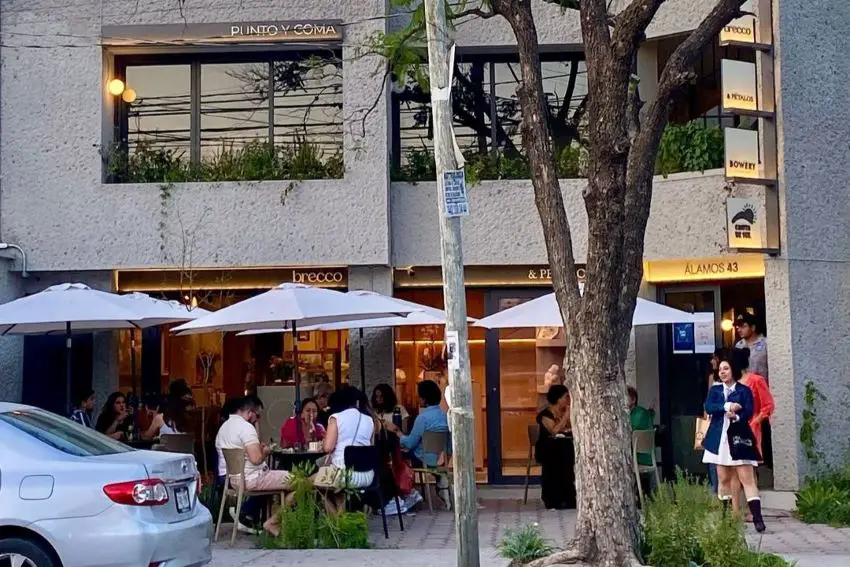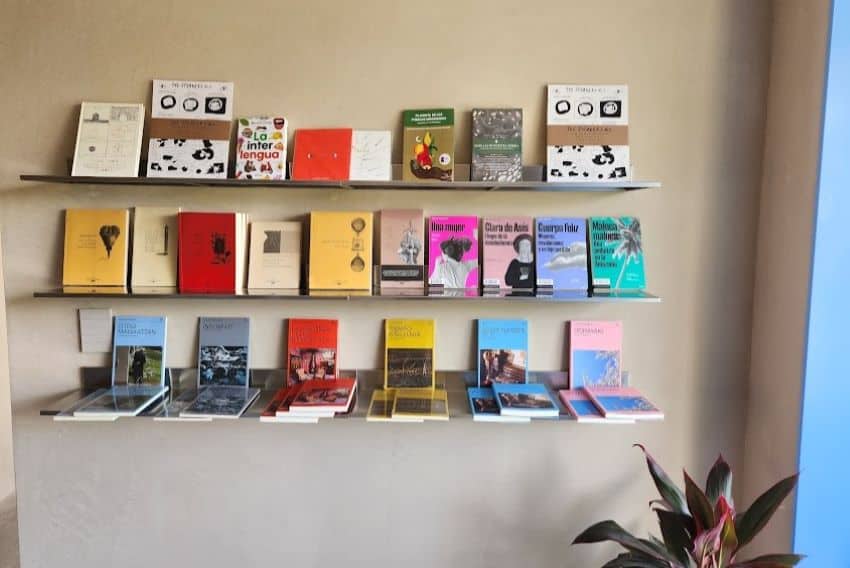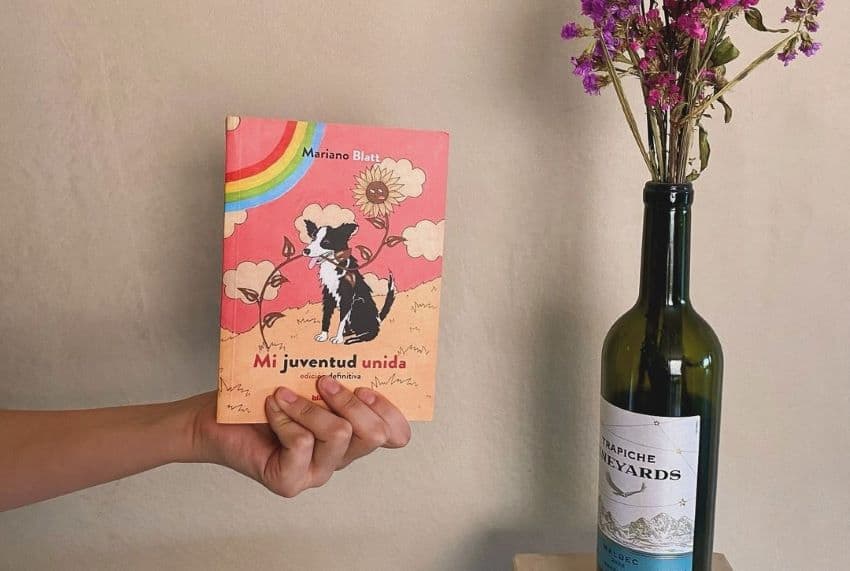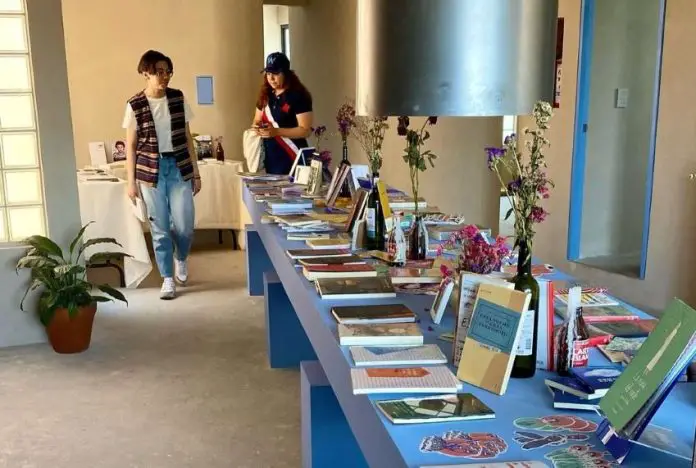This past March, Querétaro city became home to a new literary space. Punto y Coma, located on the second floor of what used to be an old house in Colonia Álamos, is much more than just a bookstore. Owner Emilia Pesqueira intended for it to be a space of relaxation, reflection, companionship and creativity.
A writer herself, Pesqueira has been leading writing workshops since 2018, both online and in person, and Punto y Coma has provided a physical space for her to host them in an environment that is fully her own.

Aside from writing workshops, there are book clubs that meet weekly, drink-and-write sessions, book presentations and even spaces where you bring your own book and read alongside others.
The cultural and literary project of Punto y Coma is mainly to support independent publishing. Most books you will find there come from small publishers or even self-published authors, mainly Latin American, with the exception of some editorial houses that do independent translation as well, including Almadía, Sexto Piso, Chai Editoras, Antílope, Elefanta and Gris Tormenta.
Aside from supporting local publishing, Pesqueira’s intent was to provide a creative space to brings in younger audiences in Querétaro. These spaces are abundant in a city like Mexico City, for example, but pretty scarce in smaller cities. When they do exist, they can be hard to find or have trouble publicizing themselves.
MND interviewed Pesqueira to hear more about her intentions and hopes for the bookstore.

What’s behind the name?
“Punto y coma” is the Spanish term for a semicolon. Grammatically, a semicolon separates two ideas that could exist independently with a dot in between, but not a comma. This is because both ideas are distinct enough from each other to exist separately but not similar enough that they exist together. So a semicolon is the idea that there could have been a dot here, but continuity was chosen instead.
“When you read out loud, commas, dots and other punctuation marks give you a moment to breathe. A text that has no punctuation marks is hard to read out loud in its entirety because you run out of breath. So it’s also a pause, a breath and a meeting point for things that at first glance don’t seem likely to meet, but here they do.”
Why a bookstore?
My love for books and growing up in houses where books were as ordinary parts of the house as furniture was. It’s also the classic teenage girl dream: having a bookstore that is also a coffee shop that is also a bar that is also a record store. To me it feels like a very feminine dream, I think.
I also imagined it to be something I would have when I was older, many years down the line. Like, for a fifty-year-old me. But I went on a trip where I visited a ton of bookstores and I started to wonder why it had to be so many years down the line, and why not now.
Especially because of [my] workshops, I’d already built a community there so I didn’t find it so crazy or that it would be too challenging to bring people in.

Why independent publishing?
I think reading is a deeply political act and to me it’s important to have a bookstore whose catalog is full of independent publishers that pull for texts that are out of the norm or the literary canon.
Why Querétaro?
I used to live in Mexico City and I considered opening it there, but they have lots of independent bookstores and I was ready to move back to Querétaro. I also thought about the importance of decentralizing culture: not everything that is important and cool has to happen in [Mexico City], even though it seems that way right now.
Initially because I wanted to create a community amongst young people here, but I also want to inspire hunger and curiosity for culture and literature, to create a space that is all about leisure, pleasure and encounters.
View this post on Instagram
Who is Punto y Coma for?
I say young people but in general, whoever. Books don’t discriminate, which I think is beautiful. The majority of people who have come to the bookstore and to workshops so far have been young people.
But it’s also for people who want to get out of their routines and create a safe space post-pandemic. Working from home is very comfortable but it can also be a little isolating. I know I’ve felt loneliness that I know is shared by many people. So it’s for anyone who wants to go against that and keep connecting with others and themselves.
Punto y Coma is open every day except Mondays, with varied hours that you can find online. You can find them on Instagram as @puntoycoma.cc, where you can find out about their monthly events and new incoming books.
Montserrat Castro Gómez is a freelance writer and translator from Querétaro, México.
